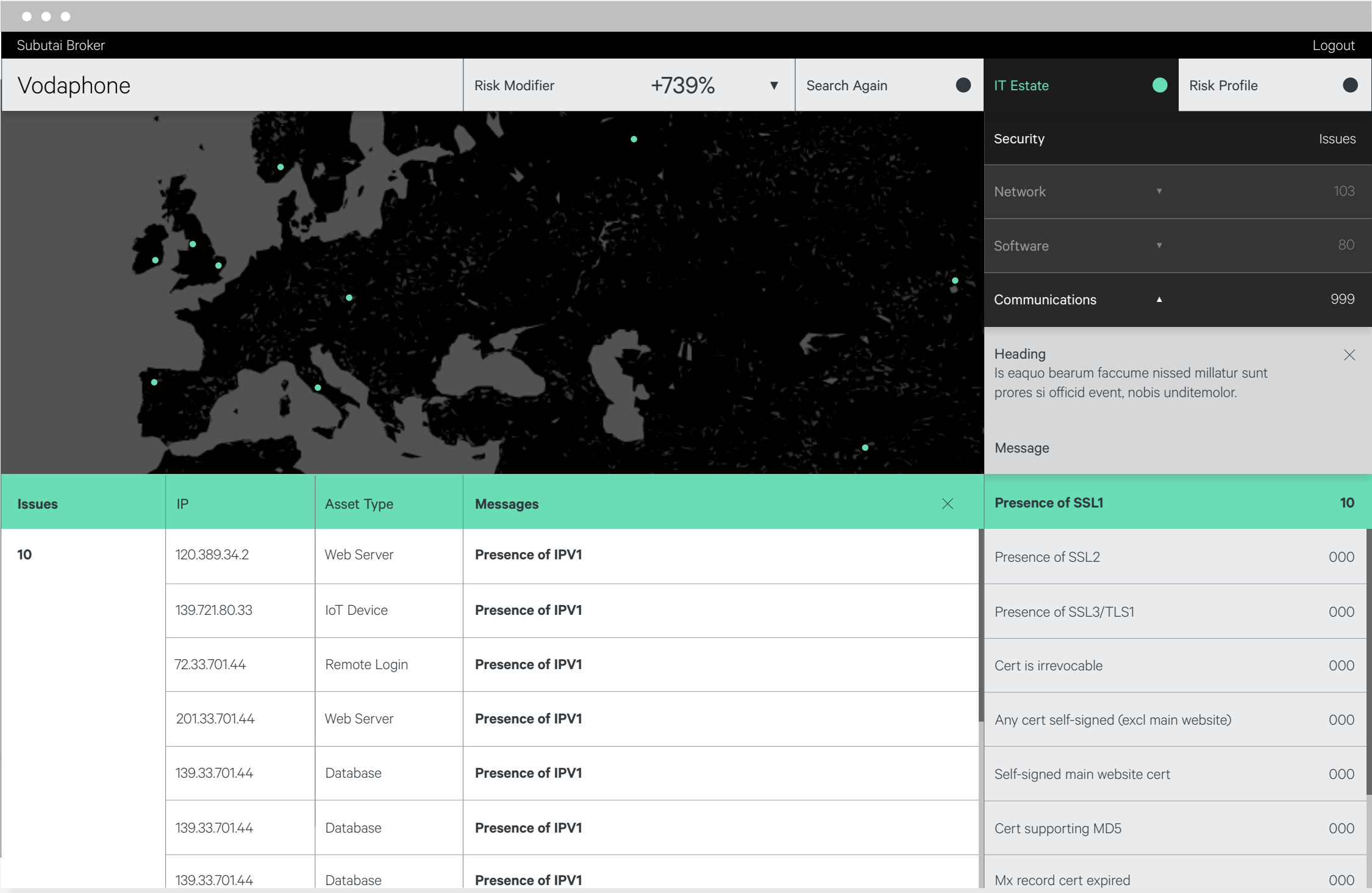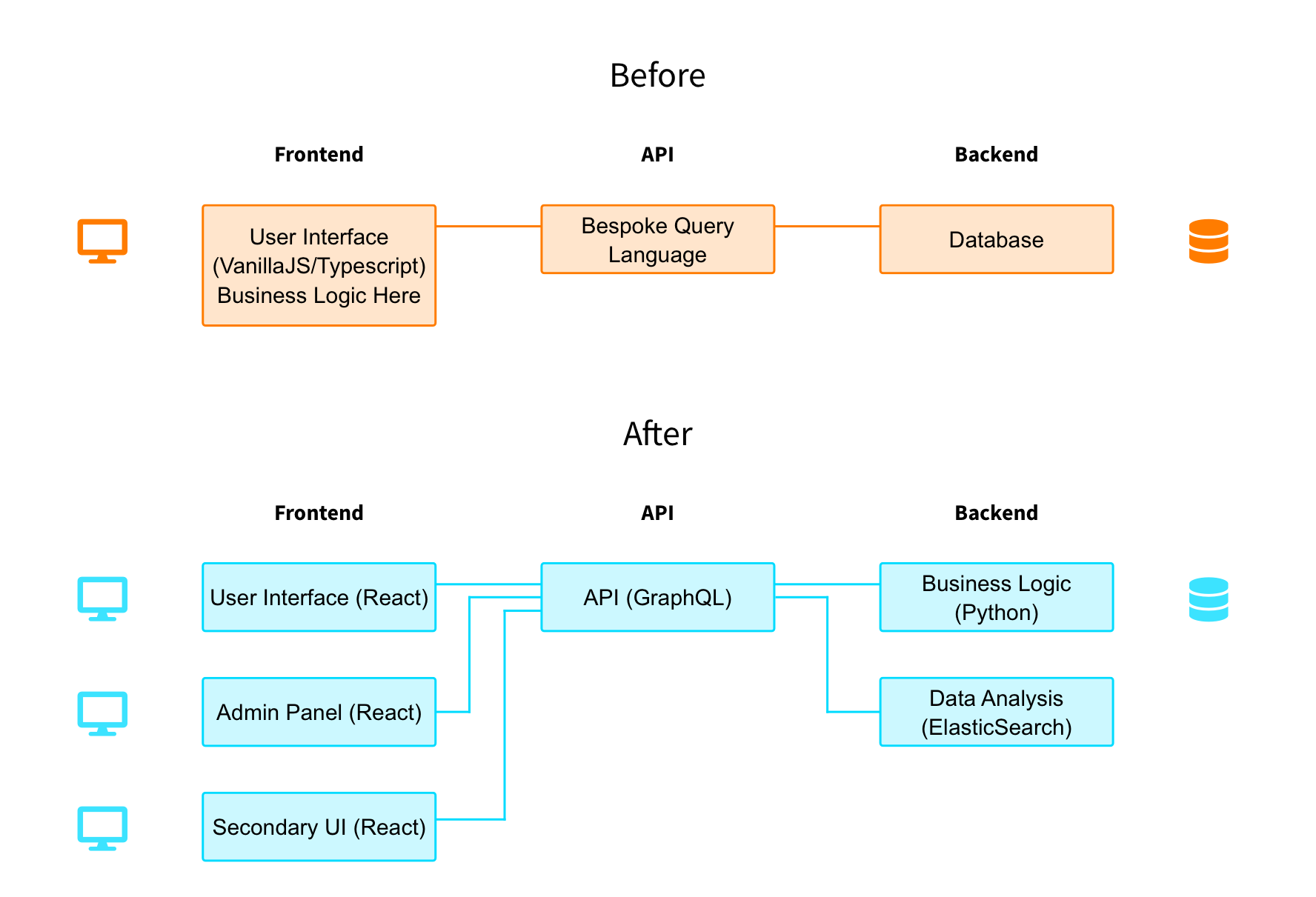Subutai Case Study
Overview
Tech Architecture, Elasticsearch, GraphQL, React, Product Design, Agile Coaching
Subutai had been iteratively building their product, but running out of runway fast. They needed their next iteration to take them from no revenue to profitable business, or the company would run out of funds.
Subutai is an InsurTech startup to help underwriters factor in the cybersecurity risk of their customers. With a product that could scan millions of data points about an enterprise and generate visualisations on the fly, they provided unparallel data-driven insight to their customers.
With a strong founding team, their product owner already knew all their future clients, and their CTO had tech degrees from Cambridge and Imperial College. However, they didn't have the product management and web architecure experience to build a product that meets customer needs, and so Calibre came in to coach them to success.
Result
After six weeks of engagement with Calibre, the Subutai team went ahead to build their first sellable product within 3 months. They quickly sold their first licences, and became a profitable company within a year.
We later developed a sweet website for them as well: www.esc.co
Highlights
Highlights
Communicating tech
See more
With such a complex product, the product and the engineering lead were imagining different things whenever they discussed how it should work. We felt this was the root issue behind why the last three versions of the product weren’t quite commercially usable by the time they were built.
By shifting their conversation from the language of user needs to talking about final design solutions, we coached the team to create a UI design specification that solved all of the challenges in one product.
The lesson learned? When the Product and Engineering aren’t communicating well, find a language they're both fluent in.

Code Smell
See more
Code smell is when you notice something that's a sign of a deeper problem. When we noticed how long it was taking to build or modify code, we looked under the hood to see that there were a lot of dependencies across the codebase. They needed a more modular architecture so that a developer could work on one part of the codebase without breaking code elsewhere.
On top of this, too much business logic was happening on the frontend, which made the product slower, less secure, and impossible to manage if they start supporting more devices.
Instead of spending a huge amount of time redesigning the architecture with them, we just nudged them to implement an open source query language called GraphQL (instead of the bespoke one they spent six months developing). We knew GraphQL would structure their codebase in an appropriate way for them, achieving the modular architecture they needed to iterate smoothly.

Sourcing niche expertise
See more
Once the team implemented a modular architecture, we were able to efficiently start solving engineering challenges across differend parts of the codebase. To achieve this quickly, we reached out to a network of niche experts who had faced similar problems before.
We brought the following experts on board to support Subutai:
An Elasticsearch expert to help them efficiently scan millions of data points.
A React.js developer to rebuild their frontend for them.
A DevOps studio to build them a continuous integration and deployment pipeline.
CALIBRE TIP
When needing a niche expert to help us, codementor.io has helped us countless times and we recommend you check it out. For this project, we found an Elasticsearch expert on the platform and she was happy to help us figure anything out.
Contact us to discover more ways you can leverage technology to grow your company.